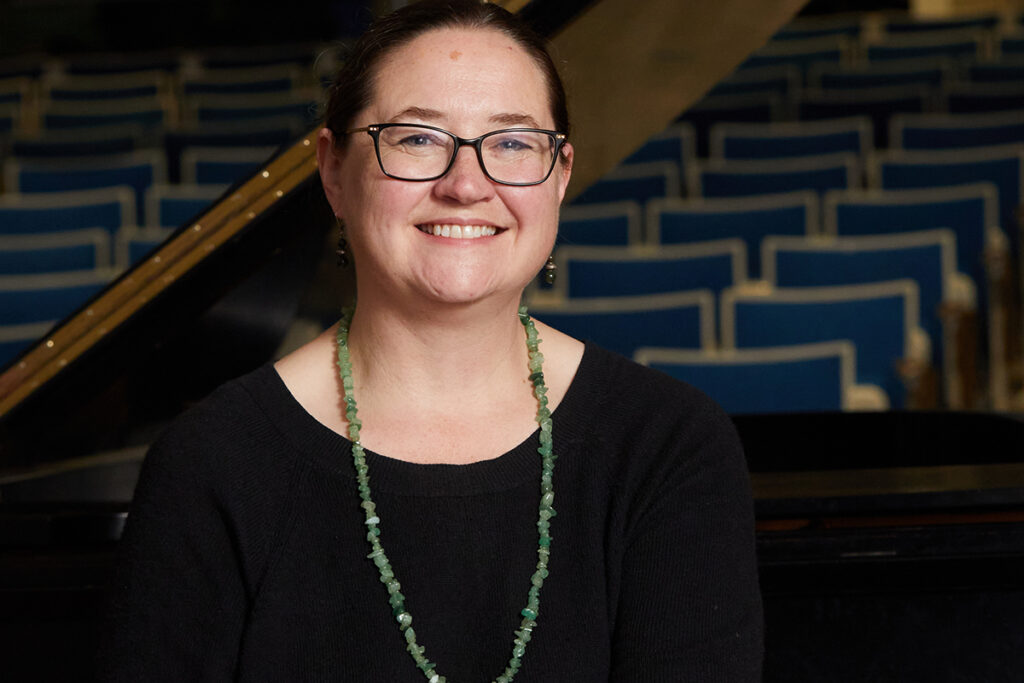When she started her major at Wichita State University, Rebecca Lepping planned on becoming a professional pianist. But in 1997, at 21 years old, she changed her major from flute and piano performance to psychology. She knew she was in for a long ride. She had lots of classes to take and a vision that she could somehow combine both her passion for music and psychology into a career.
Thus began a 15-year journey that would marry her musical ability with her scientific training.
Now a neuroscience faculty member at the University of Kansas Medical Center, Lepping developed the Power of Music Laboratory, known as PROMUS, in 2020. She’s one of the first researchers in the country to study the neurological impacts of music on a person’s physical health.
PROMUS Lab research seeks to combine scientific methodology with music theory to conduct brain imaging research on the physiological, psychological and neurological effects of music. PROMUS places a unique focus on interdisciplinary communication between the two fields. “We have all of the different expertise that we need to answer both the artistic questions but also the medical and scientific questions, so we work with multidisciplinary teams,” Lepping says.
Currently, PROMUS is in the early stages of conducting research on the effects of music on patients with Alzheimer’s. The lab’s initial research dealt with music’s effects on the body’s neurological pain responses for patients with chronic pain conditions, such as fibromyalgia. “Music can be a very powerful distractor,” Lepping says, “but we want to know, is it something special? Is it something different? Is there anything additive about music versus some other distraction?” Lepping thinks there is.
Lepping, who minored in piano, worked as a pianist shortly after her undergraduate studies and before flying across the Atlantic to enroll in a music and psychology masters program at the University of Sheffield in England. At that time, there weren’t any graduate programs in the U.S. that combined music and psychology, Lepping says. After returning to Kansas City, she attended UMKC’s Conservatory and received her masters in performance before moving on to KU to complete a Ph.D. in cognitive psychology. “That was when I was finally able to combine music and psychology into the same research,” Lepping says.
Currently, PROMUS is one year into a two-year-long professional development grant program within KU provided by the Frontier Institute. Working alongside the Alzheimer’s Disease Research Center, Lepping works with mentor Kristine Williams, a professor with the School of Nursing, on communication strategies between researchers, care providers and their patients. This program is in line with the lab’s mission to foster interdisciplinary collaboration between musical and medical professionals.
In May of 2023, PROMUS was included in an initiative by ArtsKC to found their Neuroarts Coalition. Lepping, a member of the coalition’s advisory committee, defines neuroarts as “trying to understand how the arts are associated with our neurological functioning. I want to know what’s happening in the brain and the body that’s related to psychological experiences that people have.”
This past spring, ArtsKC held its first thought leadership summit, with Lepper as a presenter, to foster “cross-sector collaboration to examine the power of arts-integrated practices.”
Lepping, who minored in piano, worked as a pianist shortly after her undergraduate studies.





